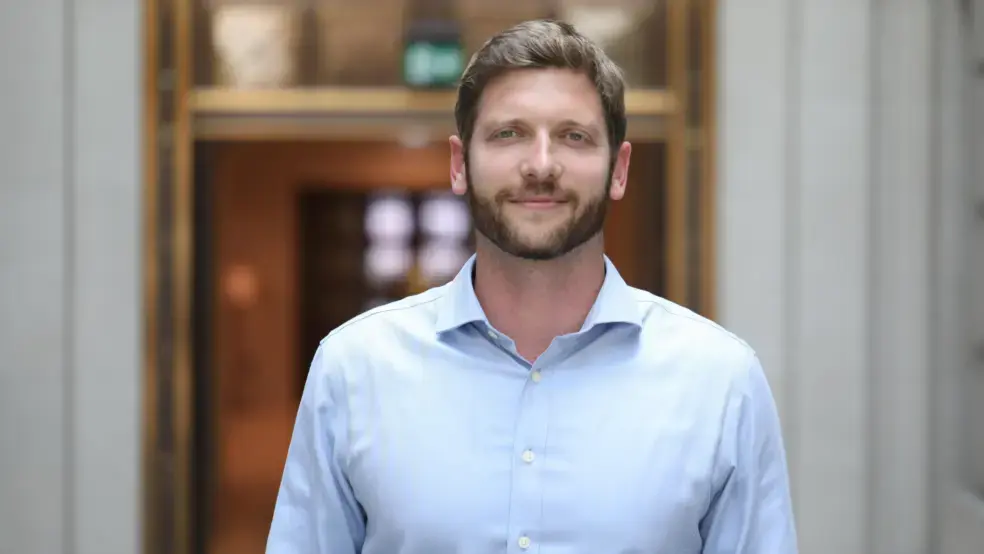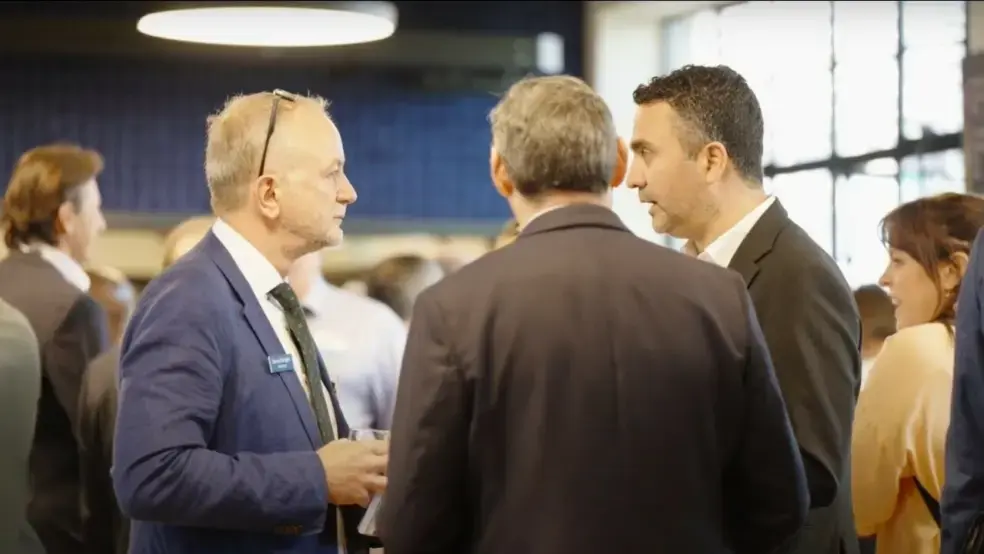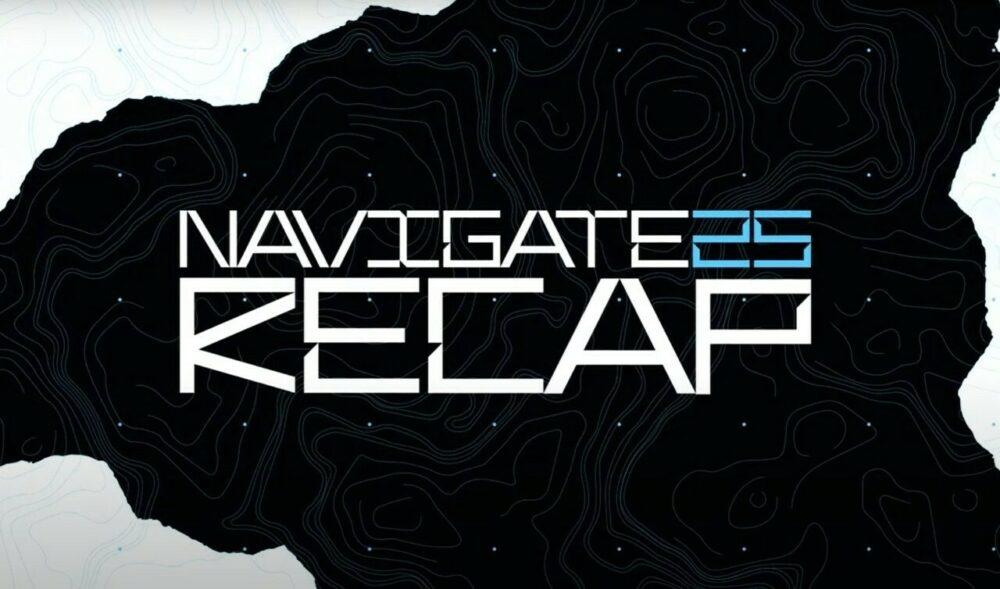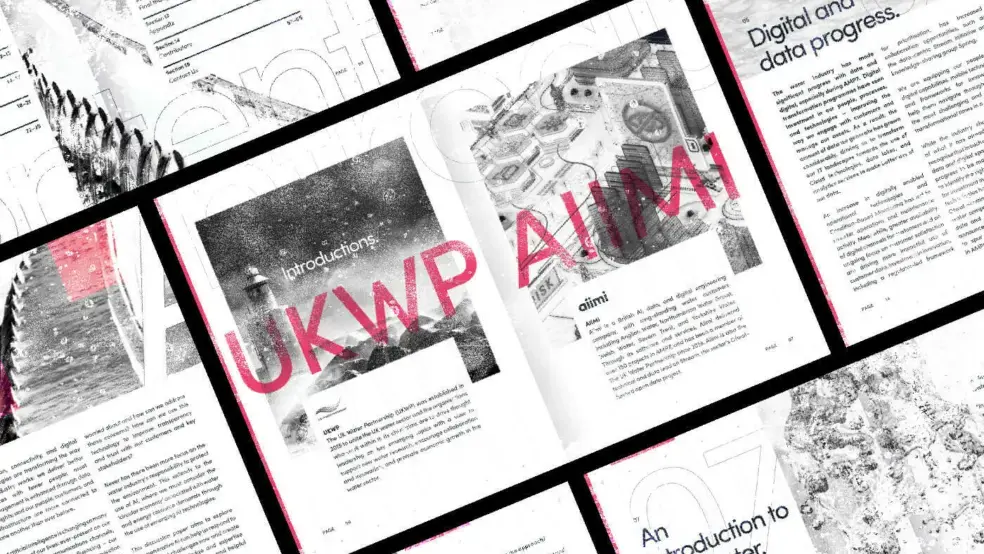Happiness is not success: A personal journey in mental wellbeing

I can’t truly put into words how it feels becoming a dad. I remember holding this tiny bundle in my arms as his eyes spied me for the first time, knowing he was so precious and dependent on me. My son. I couldn't stop staring at him. It was a moment of elation, joy, fear, apprehension, contentment all rolled into one - and a definite sense that things were getting real. As a parent, you naturally think of all the ways you can be the best for your child. But how can you be a role model when the fabric of your life is slowly unravelling around you?
It started out as a background rumble, a shadow that would flitter occasionally through my mind and darken my thoughts.
This was the bizarre situation I found myself in. From the outside, I was successful, in a way living the ‘American Dream.’ I was in my late twenties and had stepped into my first leadership role within Aiimi, taking responsibility for big chunks of the organisation. There were a lot of outcomes I had to take care of, pound signs above my head, and people who looked to me for guidance. We’d just moved out of a flat in London into a proper grown-up house with a large mortgage. I had an amazing wife, fantastic friends and colleagues, and my son who was now 1 ½ years old. And yet – something didn’t feel right. It started out as a background rumble, a shadow that would flitter occasionally through my mind and darken my thoughts. I’d be pushing my son on the swings in the playground, hearing him giggle with joy as he swung higher and higher, whilst my thoughts fell lower and lower. Did I remember to send that important email at work? What if the meeting on Tuesday falls through? What if they think I haven’t prepared enough? I should have done the errands as my wife asked me to, now she’ll be annoyed at me. Why am I even worrying like this when I should be spending time with my son?
For months, I tried rationalising with myself, but things only seemed to get worse.
I'd peer around at the abundance I created and try and shake myself into happiness. How dare I be unhappy when there were people in the world who’d do anything to have what I had. How selfish. For months, I tried rationalising with myself, but things only seemed to get worse. I’d find myself at work stressed, not feeling connected to what I had to be doing. At the end of each week, I’d come home feeling like I’d been wading through a parallel universe, and that someone else was living my life. My friends and colleagues picked up on this, even though I thought I was hiding how I was feeling really well. As far as I was concerned this was my problem, and it was down to me to make myself happy again. I had regular sleepless nights and started drinking too much. Family events and time with friends that used to bring me joy now felt stale and bland. Slowly, the colour and vitality I thought was a given started fading from my life until things became a monotonous shade of grey.
Then, one night, something snapped. That week I’d had several tough commercial meetings at work, that ended in an Aiimi team meeting on a Thursday. For the first time in my life, I went out with the sole intention of getting absolutely, catastrophically blind drunk. Up to then, drinking for me had been fun, a secondary thing, sort of an excuse to bond with friends and colleagues. But tonight something was different. Pint after pint, I drank my problems away into oblivion until the pub I was standing in started to swirl and blend with the incoherent voices around me. It was almost as if I wanted to beat myself up and punish myself for not being happy. That night I drank so much I blacked out.
We’d discussed counselling before, but I’d always made an excuse for it not happening.
I didn't know where the hell I was when I woke up the next morning. Before I even opened my eyes, I felt dread coursing through my mind that I’d had done something I regretted or was embarrassed by. It was a new low and I felt terrible shame. My wife was incredibly supportive, and after a frank conversation that day we agreed I would go to counselling. We’d discussed counselling before, but I’d always made an excuse for it not happening. The idea of baring my inner thoughts and secrets to a stranger filled me with fear, but the prospect of leaving things as they were was worse. Whilst researching for a counsellor, I found that looking at their profile pictures was useful because it gave me an idea of who they might be. I started asking myself questions. Do I feel more comfortable with a male or female counsellor? Do they offer a taster session I can go to? This helped me find the right counsellor who I could go on a journey with. The first session I went to felt a bit weird because they didn’t ask me a lot of questions. As I got into it though, I found my defences lowering and my story naturally poured out. Every time I came out of a one-hour session I felt physically drained, like I’d just finished a marathon. Meeting with my counsellor for close to a year was one of the best things I’ve ever done in my life.
Like so many people, I had without realising it seen happiness as a prize I could get later in life after I’d been successful and accomplished everything I’d set out to do. I’d always seen success as a must, a non-negotiable, and my mentality was that I would only be happy after I accomplished something. If I got good grades at school, I’d be happy. If I got married, I’d be happy. If I bought a nice house, I’d be happy. Then, once I achieved something, I’d change the goalposts. ‘You did a good job, now do a better job. You hit your targets, now create bigger, higher targets!’ This conditional way of thinking meant that I was never happy, because happiness is a state of mind. I was perpetually chasing something that I would never be good enough for and totally missed the fact I had all I needed to be fulfilled. I’d mistaken success within our current worldview for happiness, and in fact the two are not the same. Success is a goal-oriented mentality, where you’re always looking ahead at your next target, and measuring where you are now against where you want to be. Happiness is the opposite – it's a mindful state of gratitude and appreciation for the abundance you already have in your life. Trying to turn happiness into a goal is like trying to cut the lawn with a frying pan...it’s probably the wrong tool.
Nowadays when I feel a negative thought pattern forming, I make a conscious effort to recognise it and understand it.
Don’t get me wrong – counselling didn’t somehow turn me into a Zen monk, or stop me being hungry to work harder and achieve. I still believe that anything worth achieving will be hard and the struggle is part of the recipe. But I did become much more aware of my own thought patterns, and what to do about them. Nowadays when I feel a negative thought pattern forming, I make a conscious effort to recognise it and understand it. Has there been an event recently that’s triggered my feelings? This thought is just the outcome, so what’s the root cause? Is it something small I can deal with, or a big problem I need to get help with? Instead of getting sucked into a thought pattern and have it define my reality, I simply acknowledge it for what it is – a thought, and then categorise it. This ability to be my own mental and emotional detective has empowered me hugely to live a happier life, forgive myself and recognise fulfilment when I see and feel it.
The best thing about going to counselling is that I can now be much more present when I spend time with my family. When we're mucking around together, they’re laughing and I'm laughing because...well, we’re happy! As a father, I’ve become really aware of the narrative I’ve subconsciously learnt about happiness, and how to pass down a better set of beliefs to my children. Society has warped our relationship with happiness, fulfilment and success, and a large part of it I think is that we’ve got masculinity all wrong. The traditional, old-fashioned idea that a ‘real man’ is uncompassionate, tight-lipped, the main breadwinner and emotionally repressed is toxic. What are we truly telling our youth and young people here? That happiness is only attainable through a certain, narrow standard of power and control, and that strength comes from not understanding your emotions. These are dangerous messages that I don’t want to pass onto my children. I want my children to know that real strength is the ability to be vulnerable even when it’s hard - that being honest about who you are and how you feel is a great thing. If you’re brave enough to be yourself and you’re comfortable being that way, you’re miles ahead of the game. That’s how I feel fulfilled and what true success is all about for me.
If you’re looking for mental health resources, you might like to check out some of the following options:
For Aiimi staff, don’t forget you can make use of our free, confidential Health Assured service for resources, advice and counselling
Mind – www.mind.org.uk
Samaritans – www.samaritans.org
Time to Change – www.time-to-change.org.uk
Read the other posts in our Personal Journeys in Mental Wellbeing series:
Speaking My Mind by Steve Salvin
Stay in the know with updates, articles, and events from Aiimi.
Discover more from Aiimi - we’ll keep you updated with our latest thought leadership, product news, and research reports, direct to your inbox.
You may unsubscribe from these communications at any time. For information about our commitment to protecting your information, please review our Privacy Policy.



